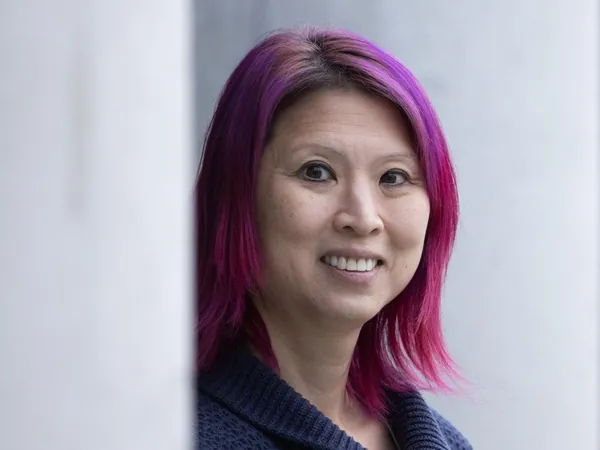
Revolutionizing Social Media: UBC Expert Advocates for Intentional Engagement Over Disengagement
2024-11-17
Author: Charlotte
Introduction
In a world where social media is often criticized for its negative impact on mental health, a groundbreaking study from the University of British Columbia challenges the conventional wisdom of quitting social media for better psychological well-being. Dr. Amori Mikami, a professor at UBC, argues that instead of logging off entirely, young adults should engage more deliberately with digital platforms.
Quality Over Quantity
The concept is simple yet powerful: 'Quality over quantity.' As the author of a recent study published in the Journal of Experimental Psychology, Mikami explored the impact of social media usage on 17- to 29-year-olds, revealing that how we interact with these platforms may be more important than merely reducing our usage.
Mental Health Impacts
With widespread documentation of social media's harmful effects—including increased depression, anxiety, negative body image, and bullying—many have turned to abstinence strategies. These strategies often involve taking breaks, deleting apps, or using timers to limit screen time. However, for digital natives who have grown up in an era dominated by technology, complete disengagement may not be the most beneficial approach.
A New Perspective
Mikami's research presents an alternative perspective: modifying social media habits could be a smarter approach. She emphasizes that social media can foster meaningful connections with friends and family and combat feelings of isolation and loneliness.
Study Methodology
In the study, participants were divided into three groups: one that continued their usual routines, another that abstained from all social media, and a third group that engaged with social media more intentionally. Those in the 'tips-and-tricks' group logged off from accounts that triggered negative emotions and concentrated on interactions that brought them joy.
Key Findings
Mikami noted, 'We told them to lean into those positive social relationships that brought them joy.' Interestingly, while the abstaining group reported some benefits, like decreased anxiety and depression, it was the intentional users who experienced significant reductions in loneliness and the fear of missing out.
Understanding Social Media as a Business
'Social media is a product, it’s a business,' Mikami points out, highlighting how these platforms monetize user engagement. They thrive on keeping users online, which can lead to unhealthy habits such as comparison and doom-scrolling. Thus, Mikami insists that leaning into the positive aspects of social media is crucial for maintaining mental health without sacrificing valuable social connections.
Actionable Tips for Meaningful Engagement
To help users engage more meaningfully with social media, Mikami offers several actionable tips: 1. Be Mindful Before Logging On: Take a moment to reflect on your intent. Are you genuinely connecting with people, or are you simply procrastinating? 2. Monitor Your Feelings: Pay attention to how different platforms or interactions affect your mood. Unfollow accounts that induce anxiety or stress. 3. Engage Positively: Use social media to nurture and strengthen relationships. Focus your energy on the people you care about and want to connect with.
Conclusion
Dr. Mikami's findings provide a refreshing blueprint for navigating the intricate landscape of social media. Instead of simply logging off, she suggests that a more thoughtful approach can lead to healthier and richer online experiences. As we continue to integrate digital platforms into our lives, understanding how to leverage them positively may just hold the key to maintaining our mental well-being in an increasingly connected world.









 Brasil (PT)
Brasil (PT)
 Canada (EN)
Canada (EN)
 Chile (ES)
Chile (ES)
 España (ES)
España (ES)
 France (FR)
France (FR)
 Hong Kong (EN)
Hong Kong (EN)
 Italia (IT)
Italia (IT)
 日本 (JA)
日本 (JA)
 Magyarország (HU)
Magyarország (HU)
 Norge (NO)
Norge (NO)
 Polska (PL)
Polska (PL)
 Schweiz (DE)
Schweiz (DE)
 Singapore (EN)
Singapore (EN)
 Sverige (SV)
Sverige (SV)
 Suomi (FI)
Suomi (FI)
 Türkiye (TR)
Türkiye (TR)